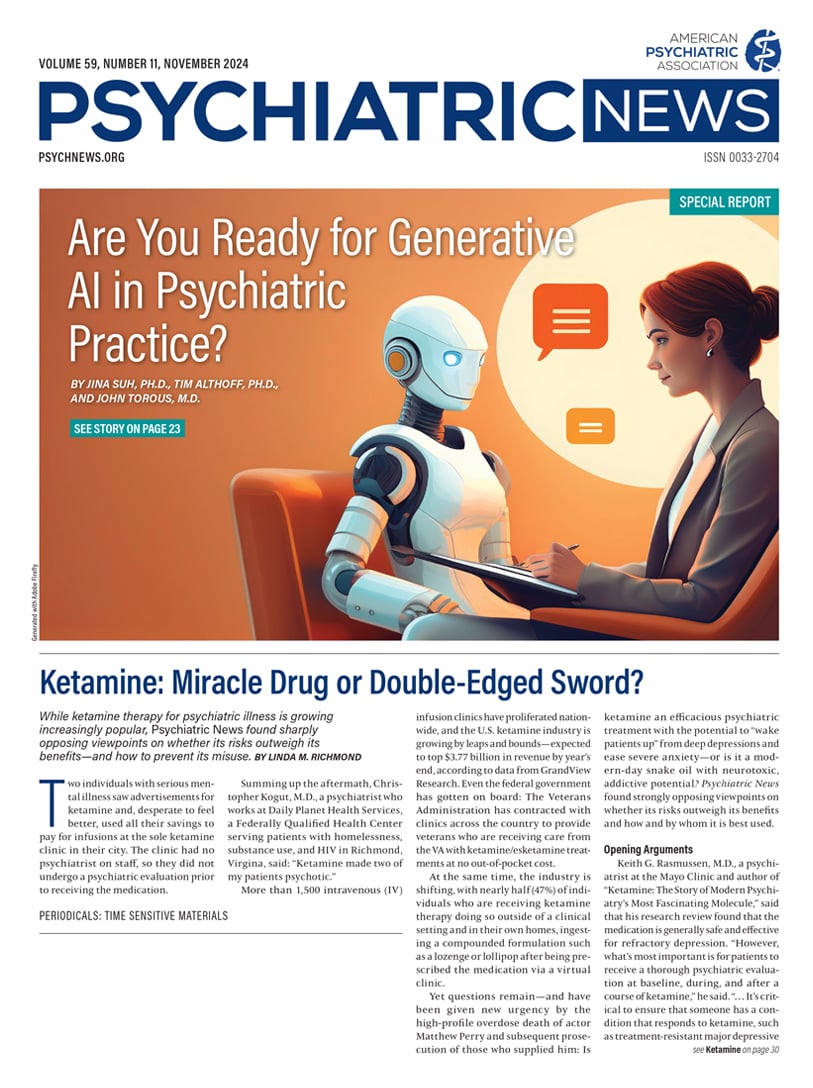Words are a psychiatrist’s greatest tool. Even with the numerous psychotropic medications available for use today, ultimately, we rely heavily on spoken interactions with our patients. We must know not only what difficult questions to ask, but how to ask them in a way that doesn’t harm the therapeutic relationship. If a patient doesn’t trust us, why would they trust our treatment plan?
Every day, psychiatrists conduct these calculations with words: How should I phrase this? How explicit should I be? This careful process was once largely contained within a psychiatrist’s own mind and the exam room. However, the 21st Century Cures Act—signed into law in 2016—made our notes “open.” Now, patients do not just hear what we say, they read our interpretations of them. In medical school, I was taught that the purpose of documentation was largely for communication among the health care team, billing, and legal protection. Undoubtedly these are notable considerations, but in reading thousands of notes through medical school and the beginning of my residency, I have found a significant component missing: consideration of the patient. While I would never ascribe malicious intent to a physician’s description of patients, too often I have noticed word choices and descriptions that are blatantly insensitive to the fact that patients and family members can now read these notes.
One of the primary initiations we experience as medical students is learning the vernacular. Through this new language, we often use words and phrases that do not make sense to the average person. By “poor historian,” for example, we might simply mean that a patient had difficulty articulating their symptoms. Yet, when a patient or their family reads this, what are the chances this is how they interpret the description? “SOB” to us means something much different than it does to the common person. And, specific to psychiatry, we often record a patient’s insight and judgment as “poor.” Even if this is meant as an objective assessment of someone’s mental status, shouldn’t we care how they might subjectively interpret it?
Some colleagues may counter that these concerns are negligible. In response, I suggest that what separates psychiatry from other specialties is an insistence that how we use words is never negligible. It always matters. Psychiatry is at its best when we can learn to dance among the entanglement of these specificities—because we are the ones who asserted that there is, in fact, a difference between words like “insight” and “judgment,” between “circumstantial” and “tangential.”
Open notes is now the law of the land. While initially this was not the case, reinterpretation of the law has granted patients with psychiatric disorders free, immediate, online access to their medical records. Because of this, just as we walk the line of sensitivity and objectivity in our exam rooms, we must now also do so in our documentation. ■
Editor’s note: For a consideration of the ethics of documentation within the context of open notes access, see “
Ethics Corner.”

